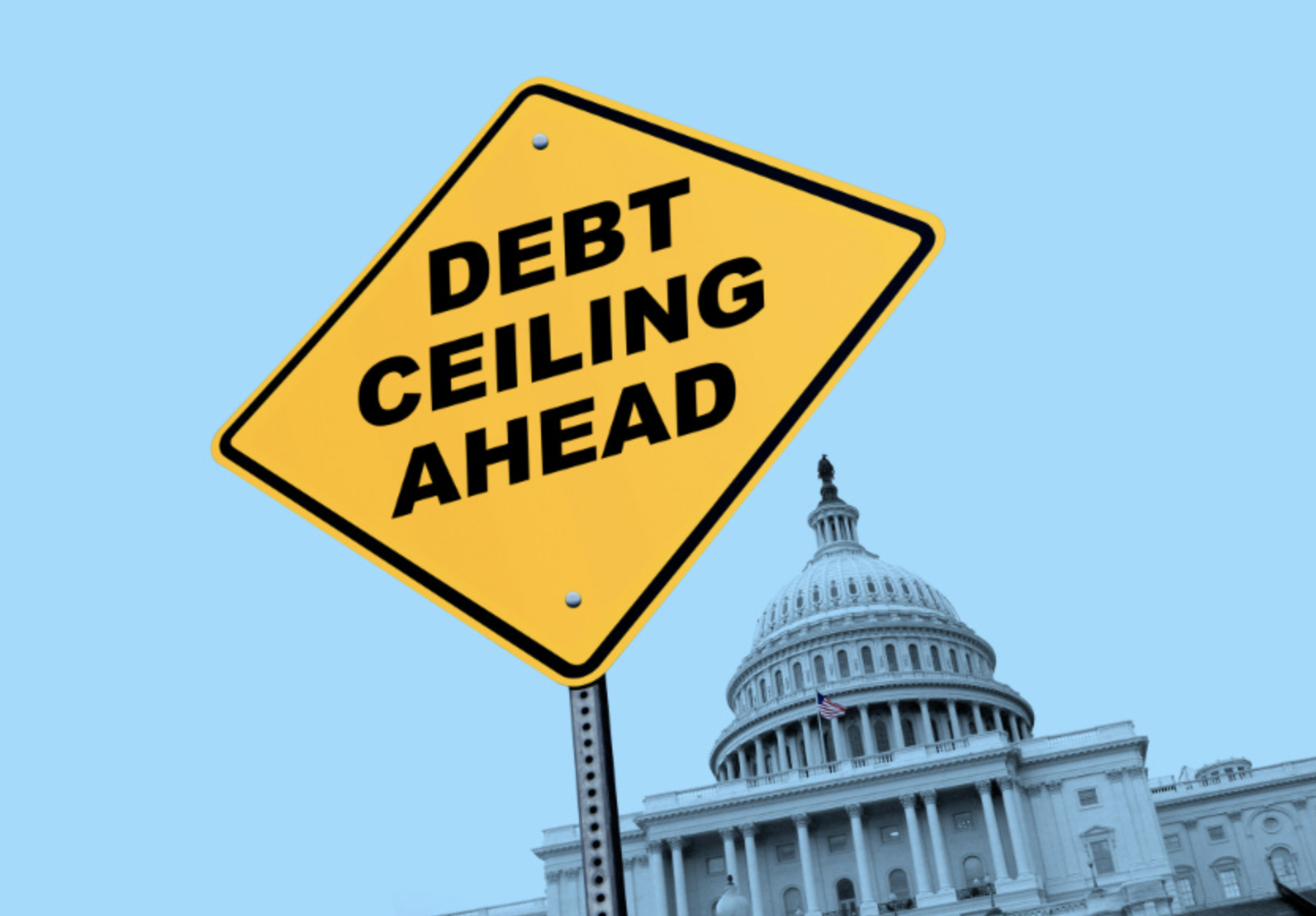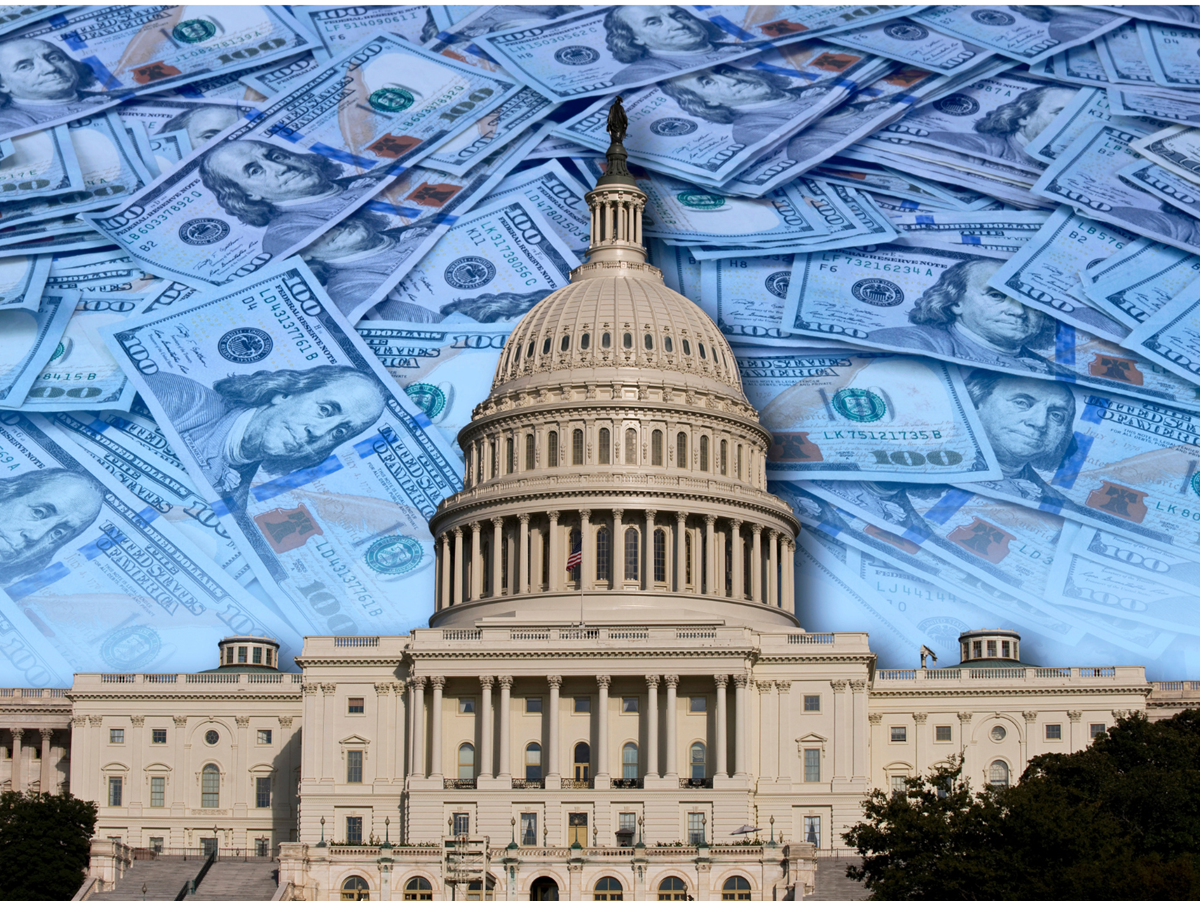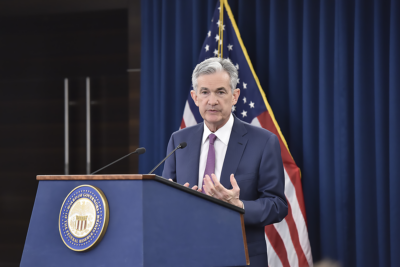U.S. Races to Dodge Catastrophic Default
If debt ceiling deal does not pass, America will run out of funds by Monday.

Sign up to unveil the relationship between Wall Street and Washington.
While Americans were cooking hot dogs and hitting the beach over the long Memorial Day weekend, President Biden and U.S. House Speaker Kevin McCarthy were working the phones, rustling up as many congressional lawmakers as possible to back their newly minted deal to slash spending and raise the debt ceiling before the country literally runs out of money.
The date when that happens was revised by the U.S. Treasury last Friday from June 1 to June 5, which would be Monday. That leaves scant time for Congress to work out its differences (of which there are many), honor the deal hashed out over the weekend, and pass a bill.
In a vote of 7 to 6, the House Rules Committee narrowly agreed to send the proposed bill, dubbed the Fiscal Responsibility Act, to the House floor Wednesday for a debate and passage vote. The deal will then require approval by the Senate. Both require a majority vote and Biden and McCarthy have expressed optimism they can ram it though. “I strongly urge both chambers to pass that agreement,” Biden said. “Let’s keep moving forward.” McCarthy says he expects a majority of Republicans to support the bill. “We can raise the debt ceiling if we limit what we’re going to spend in the future,” he said.
With the House controlled by Republicans and the Senate controlled by Democrats, there has been plenty of moaning from both sides about the final deal which, put simply, will suspend the nation’s $31.4 trillion debt ceiling for another two years, allowing the nation to pay its bills through January 2025, in exchange for slashing U.S. spending by $1.5 trillion over the next decade.
While the details of the deal are complex, the agreement effectively caps non-defense spending for fiscal 2024 and boosts it by 1 percent in 2025. Among other items, the deal claws back government Covid-19 relief funds, increases work requirements for people aged 49 to 55 receiving food stamps and reduces funding to the U.S. Internal Revenue Service, which seeks to use tens of billions of dollars of new funding to beef up enforcement in hopes of catching more tax cheats.
One highly vociferous opponent of the bill, Rep. Chip Roy, a Republican from Texas and member of the conservative House Freedom Caucus, labeled the deal a “bad bill” and sounded a warning. “I want to be very clear: Not one Republican should vote for this deal. Not one. If you’re out there watching this, every one of my colleagues, I’m gonna be very clear: Not one Republican should vote for this deal. It is a bad deal.”
As if that was not sufficiently threatening, Roy added: “No matter what happens, there’s going to be a reckoning about what just occurred.”
There’s crushing pressure on Republicans to pass the legislation by a resounding majority — ideally with more votes than Democrats — lest they appear to not support the deal they so aggressively pursued. As of this writing, dozens of House Republicans had indicated they would vote against the bill, which could make for a fairly turbulent week.
Democrats have been cool to the bill as well, with none on the 13-member House Rules Committee voting in favor of moving it to the floor for a debate. In order to pass both chambers, the bill will need strong support from Democrats to make up for the opposition from GOP lawmakers.
The debt ceiling crisis, which threatens the nation’s economy, finances and reputation, was triggered by a standoff in Washington this spring when GOP House members led by McCarthy, a Republican from California, demanded more than $4 trillion of spending cuts in exchange for raising the debt ceiling.
Biden initially refused to negotiate, but eventually was forced to the table as the U.S. economy was pushed to the brink. That said, it’s hard to argue that the U.S. should not take a closer look at its profligate spending. (Full backgrounder on this from Power Corridor here, here and here.)
It’s safe to say Americans now know far more about the nation’s bills — and how we pay for them — than we ever imagined or, frankly, wanted to hear. In the latest update from the U.S. Treasury indicating the country will run out of funds by next week, Treasury Secretary Janet Yellen explained the U.S. has to make $130 billion in scheduled payments in the first two days of June for veterans, Social Security and Medicare recipients. That leaves the Treasury with “an extremely low level of resources,” she said.
The funds likely will run out when Treasury has to make $92 billion in payments scheduled for the week of June 5 that affects investments in the Social Security and Medicare trust funds.
The fact America even got to this place remains a staggering embarrassment, says James Angel, an associate professor of finance at Georgetown University. Especially since it is not the first time Congress has courted ruin during a debt ceiling standoff.
“We are seeing continuous circuses in Washington of people not thinking about the long-term interests of the United States, but about scoring points in a political football game,” Angel says.
“And what does the rest of the world see? They see a bunch of children, threatening, ‘If I don’t get my way, I am going to destroy the everything.’ It is treasonous and I don’t use that word lightly.”











